- Home
- Aharon Appelfeld
Katerina
Katerina Read online
ALSO BY AHARON APPELFELD
Badenheim 1939
The Age of Wonders
Tzili: The Story of a Life
The Retreat
To the Land of the Cattails
The Immortal Bartfuss
For Every Sin
The Healer
Unto the Soul
Beyond Despair: Three Lectures
and a Conversation with Philip Roth
The Iron Tracks
The Conversion
The Story of a Life
This is a work of fiction. Names, characters, places, and incidents
either are the product of the author’s imagination or are used
fictitiously. Any resemblance to actual persons, living or dead,
events, or locales is entirely coincidental.
Translation copyright © 1992 by Aharon Appelfeld
All rights reserved. Published in the United States by Schocken Books,
a division of Random House, Inc., New York, and in Canada by
Random House of Canada Limited, Toronto. Originally published in
Israel by Keter Publishing House, Jerusalem, in 1989.
Copyright © 1989 by Aharon Appelfeld and Keter Publishing House,
Jerusalem, Ltd., P.O. Box 7145, Jerusalem, Israel.
This translation originally published in the United States by
Random House, Inc., New York, in 1992.
Library of Congress Cataloging-in-Publication Data
Appelfeld, Aron.
[Katerinah. English]
Katerina / Aharon Appelfeld; translated by Jeffrey M. Green.
p. cm.
eISBN: 978-0-307-48670-7
I. Green, Yaacov Jeffrey. II. Title.
PJ5054.A755K3613 2006 892.4′36—dc22 2005049965
www.schocken.com
v3.1
Contents
Cover
Other Books by This Author
Title Page
Copyright
Chapter 1
Chapter 2
Chapter 3
Chapter 4
Chapter 5
Chapter 6
Chapter 7
Chapter 8
Chapter 9
Chapter 10
Chapter 11
Chapter 12
Chapter 13
Chapter 14
Chapter 15
Chapter 16
Chapter 17
Chapter 18
Chapter 19
Chapter 20
Chapter 21
Chapter 22
Chapter 23
Chapter 24
Chapter 25
Chapter 26
Chapter 27
Chapter 28
Chapter 29
Chapter 30
Chapter 31
Chapter 32
Chapter 33
A Note About the Author
1
MY NAME IS KATERINA, and I will soon be eighty years old. After Easter I returned to my native village and to my father’s farm, small and dilapidated, with no building left intact except this hut where I’m living. But it has one single window, open wide, and it allows in the breadth of the world. My eyes, in truth, have grown weaker, but the desire to see still throbs within them. At noon, when the light is most powerful, open space expands before me as far as the banks of the Prut, whose water is blue this season, vibrant with splendor.
I left this place behind more than sixty years ago—to be precise, sixty-three years ago—but it hasn’t changed much. The vegetation, that green eternity which envelops these hills, stands tall. If my eyes do not deceive me, it’s even greener. A few trees from my distant childhood still stand straight and sprout leaves, not to mention that enchanting, wavelike movement of these hills. Everything is in its place, except for the people. They’ve all left and gone away.
In the early morning hours, I remove the heavy veils that obscure the many years and examine them, with silent observation, face to face, as they say in Scripture.
The summer nights in this season are long and splendid, and not only are the oaks reflected in the lake, but the simple reeds also draw vigor from that clear water. I always loved that modest lake, but I especially loved it during the brilliant summer nights, when the line between heaven and earth is erased and the whole cosmos is suffused with heavenly light. The years in a foreign land distanced me from these marvels, and they were obliterated from my memory, but not, apparently, from my heart. Now I know that light is what drew me back. Such purity, oh Lord! Sometimes I wish to stretch out my hand and touch the breezes that meet me on my way, because in this season they are soft as silk.
It’s hard to sleep on these brilliant summer nights. Sometimes it seems to me that it’s a sin to sleep in this brilliance. I understand now what it says in the Holy Scriptures: “He who stretches out the heaven like a thin curtain.” The word curtain always sounded strange and distant. Now I can see the thin curtain.
Walking is very hard for me. Without the broad window, which is open wide, without it taking me out and bringing me in, I would be locked up here like in prison, but this opening, by its grace, brings me out easily, and I wander over the meadows as in my youth. Late at night, when the light dims on the horizon, I return to my cage, my hunger sated and my thirst slaked, and I shut my eyes. When I close my eyes I encounter other faces, faces I haven’t seen before.
On Sundays I pull myself together and go down to the chapel. The distance from my hut to the chapel isn’t great, a quarter of an hour’s walk. In my youth I used to cover the distance in a single bound. Then all my life was a single puff of breeze, but today, though every step is painful, that walk is still very important to me. These stones awaken my memory, especially the memory from before memory, and I see not only my departed mother but everyone who ever passed over these paths, knelt, wept, and prayed. For some reason it now seems that they all used to wear fur coats. Maybe because of a nameless peasant, who came here secretly, prayed, and afterward took his life with his own hand. His shouts pierced my temples.
The chapel building is old and rickety yet lovely in its simplicity. The wooden buttresses that my father installed still protect it. My father wasn’t scrupulous about keeping our religion, but he saw it as his duty not to neglect this small sanctuary. I remember, as though in a twilight, the beams he carried on his shoulders, thick staves, and the way he pounded them into the earth with a huge wooden mallet. My father seemed like a giant to me then, and his work was the work of giants. Those beams, though they’ve rotted, are still rooted in their place. Inanimate objects live a long life; only man is snatched away untimely.
Whoever thought I would come back here? I had erased this first bosom from my memory like an animal, but a person’s memory is stronger than he is. What the will doesn’t do is done by necessity, and necessity ultimately becomes will. I’m not sorry I returned. Apparently, it was ordained.
I sit on the low bench in the chapel for an hour or two. The silence here is massive, perhaps because of the valley that surrounds the place. As a girl I used to run after cows and goats on these trails. How blind and marvelous my life was then. I was like one of the animals I drove, strong like them and just as mute. Of those years no outward trace remains, just me, the years crammed into me, and my old age. Old age brings a person closer to himself and to the dead. The beloved dead bring us close to God.
In this valley I heard a voice from on high for the first time—actually, it was in the lowest slopes of this valley, where it opens up and flows into a broad plain. I remember the voice with great clarity. I was seven, and suddenly I heard a voice, not my mother’s or father’s, and the voice said to me, “Don’t be afraid, my daughter. You shall find the lost cow.” It was an assured voice, and
so calm that it instantly removed the fear from my heart. I sat frozen and watched. The darkness grew thicker. There was no sound, and suddenly the cow emerged from the darkness and came up to me. Ever since then, when I hear the word salvation, I see that brown cow I had lost and who came back to me. That voice addressed me only once, never again. I never told anyone about it. I kept that secret hidden in my heart, and I rejoiced in it. In those years I was afraid of every shadow. In truth, I was prey to fear for many years and only free of it when I reached an advanced age. If I had prayed, prayer would have taught me not to be afraid. But my fate decreed otherwise, if I may say. The lesson came to me many years too late, immersed in many bitter experiences.
In my youth, I had no desire either for prayer or for the Holy Scriptures. The words of prayers that I intoned were not my own. I went to church because my mother forced me. At the age of twelve, I had visions of obscenities in the middle of prayers, which greatly darkened my spirit. Every Sunday I used to pretend to be sick, and as much as my mother hit me, nothing did any good. I was as afraid of church as I was of the village doctor.
Nevertheless, thank God, I didn’t cut myself off from the wellsprings of faith. There were moments in my life when I forgot myself, when I sank into filth, when I lost the image of God, but even then I often would fall to my knees and pray. Remember, God, those few moments, because my sins were many, and only Thou, with Thy great mercy, know the soul of Thy handmaiden.
Now, as the proverb says, the water has flowed back into the river, the circle is closed, and I have returned here. The days are full and splendid, and I wander at great length. As long as the window is open and my eyes are awake, loneliness doesn’t grieve my soul. Too bad the dead are forbidden to speak. They have something to say, I’m sure.
Once a week blind Chamilio brings me supplies from the village. My needs are now very few—three or four cups of tea, bread, and farmer’s cheese. There’s plenty of fruit here. I have already tasted the cherries, pure wine.
Chamilio isn’t young any longer, but his blind gait is steady. He gropes with his thick staff, and his staff never betrays him. When he bends over, I discover a strong line in his back. They told me that when he was young, the women clung to him. No wonder; he was handsome. Now, see what the years have done to him. First he became deaf and then he went blind and now there are only remnants of him. When he approaches my hut with the bundle on his shoulders, he seems heavy and submissive for some reason, but that’s only an illusion.
When I left the village he had just been born, but I heard a lot about him, not always favorable gossip. After years of bachelorhood and wild living, he had married. The bride was pretty and rich and she brought a considerable dowry, but she wasn’t faithful. They said that was his punishment because he had deceived so many women, but she too was punished for her infidelities: A swarm of hornets attacked her in the middle of a field and killed her. For once it seemed as though reward and punishment had been meted out in this world, but who am I to judge about that mysterious balance.
Every Thursday, Chamilio comes and brings me my food. God knows how he finds his way. To my mind he’s an otherworldly creature. Without him I would be lying in the dust.
“Thank you, Chamilio,” I say loudly. I doubt whether he can hear me. In any case, he makes a small grimace as though driving away a thought. When I put something in his big palm, he bangs on the floor with his thick staff, muttering something, then leaves. His clothes give off the smell of grass and water. He apparently spends most of the day outdoors.
“How are you?” I ask him, and immediately see the stupidity of my question. He does his work quietly and steadily. First he arranges the supplies in the pantry, and then he brings in chopped wood and lays it near the stove, everything done quietly and diligently. For about an hour he works. In that hour he fills my hut with the aromas of the fields, a perfume lingering with me all week long.
I love to sit and follow him with my gaze as he walks away, a slow departure that sometimes lasts a full hour. First he goes down to the chapel, prostrates himself at the threshold, and prays. Sometimes it seems to me that I can hear his silence. Suddenly, he rouses himself, without fuss, as though turning his back, rises, and walks down to the lake. Near the lake, his strides halt and his feet stop.
Sometimes it seems to me that he tarries in order to inhale the smell of the water. In this season the lake water has a fragrance. He does indeed approach the edge of the lake, bends over, but doesn’t linger, and immediately slips down the path and is swallowed among the trees.
When he disappears among the trees, he appears before my eyes again with a different kind of clarity, sturdy and handsome, and I begin to miss him. The darkness makes me forget him all at once, and only on Thursday morning does his warm odor enter my nostrils, and I remember him, and a tremor of expectation runs down my back.
On most days I sit in my armchair, a wooden armchair upholstered with thick cushions. The years have not harmed it; it still takes pity on a person’s bones. Here my mother used to sit on Sundays, her eyes shut, all the week’s weariness stamped on her face, her hair thin and gray. Now I am forty years older than she was. The tables have turned—the mother is young and the daughter is aged, and that, it seems, is how things will remain forever. When the dead are reborn, she will certainly be astonished: Is this my daughter, Katerina? Nevertheless, when I pray for my life I also pray to her. I’m certain that our mothers protect us, that without them and their virtues, the wicked would long since have done away with us.
Most of the day I sit and gaze out. Before my eyes the lake flickers in its brilliant hues. In this season its light is dazzling. Once, abundant life rustled here, and now there is only silence. When I listen to the silence, distant sights rise up from the meadows and fill my eyes. Yesterday, I had a very clear vision. I was three and sitting in the pasture and our shepherd dog, Zimbi, was licking my fingers. Father was sitting under a tree, slowly getting drunk from a bottle of vodka, happy and content. Father, I call out for some reason. He’s so immersed in his drinking, he doesn’t answer. I sob and cry, but my sobbing doesn’t move him from his place. Mother bursts out of the house like a storm wind, and I immediately fall silent.
My mother, of blessed memory, was an unfortunate woman and we all dreaded her, even my sturdy father. Not even the cows dared defy her. I remember how, with her bare hands, she once subdued a crazed cow. Her hands, God forgive me, scar my body till today. She would beat me for everything, serious or trifling, with fury and without mercy. Easter was the only time she wouldn’t beat me. At Easter her face would change, and a silent awe came into her eyes, like a fast-flowing river whose waters grow placid. At Easter her face would radiate light throughout the house: a kind of piety that didn’t belong to this place.
I would spend Easter on a ledge, next to Zimbi. I treasure Zimbi’s memory with pleasant warmth. He was a sturdy dog. He liked people and especially children. If there is any warmth in my body, it is the warmth I absorbed from him. His odor still clings to my nostrils. When I left the house he whimpered bitterly, as though he knew I wouldn’t come back to see him. For me, he still lives, especially his barks, restrained barks, that always sounded to me like friendly greetings. My soul cleaved to his, if I may say. Since my return, I sometimes hear his whimpers, and I miss his round, soft body, his silky fur, and the smell of the river that clung to his paws.
My mother also loved Zimbi. But her love was different, hemmed in, without contact. But that mute creature apparently sensed that this unfortunate woman had a feeling for him, and he would jump toward her with affection. He was deathly frightened of my father. Sometimes I sense that I am tied to my late mother through Zimbi’s body. Our love for Zimbi bound our souls together with a hidden force. Only God knows the secrets of the heart, and only God knows what joins us together in life and death.
Right after Easter, the light in her face went out and anger would cloud it again. When I was still little, I heard people say: “She’s v
ery unfortunate. She must be pitied. Her offspring died as infants.” I was certain that the angel of death would not pass over me. Every night I would pray for my life. And, wonder of wonders, the prayers worked, and my life has been prolonged beyond man’s allotted span.
My mother died very young. Her face is as clear to me as on the day she left us. I especially see the angry swing of her long arms. Even today, many years later, I remember her with fear and trembling, as the Scriptures say. Every time I think about her, she comes toward me with rage. Why, Mother, I ask, are you angry at me? I have already been punished for my sins, and I shall be whipped for my transgressions in the world of truth. But my mother is obstinate. She is very young, and she will stay young for all eternity. If she had lived as long as I, her blood would have been calmer. At my age, no one gets angry any longer.
Sometimes it seems to me that she bears us all a grudge because we buried her in the ice. The cemetery was barren and white, and the two gravediggers carved out her plot with axes. The people stood at a distance from the pit and shivered. The priest fumed at the gravediggers for their laziness, for not preparing the trench in time. The priest’s face was gray, and he urged the gravediggers on with mumbled words that sounded like curses.
Afterward, in the dark already, the prayers dropped like hail. I wrapped my head in a kerchief to avoid seeing the coffin lowered into the pit on ropes, but the cold penetrated to my bones anyway, and I feel it to this very day.
Right after Mother’s death, Father sank into heavy drunkenness. He neglected the house and farm, sold the embroidered cloths and even my mother’s dowry chest. Now I became afraid of him, as though he were a stranger. He would return home late at night and immediately collapse onto his bed like a corpse. He slept most of the day, stirring only toward evening, and without delay, he would head for the tavern.
In the spring he didn’t go out to the field. He ignored me as though I didn’t exist. Sometimes he would brandish his fist at me and slap my face, distractedly, the way one swats a fly. My mother’s death freed him to drink as he wanted. Sometimes he would come home in a gay mood, like a wild young man.

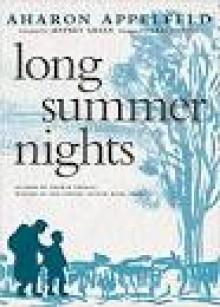 Long Summer Nights
Long Summer Nights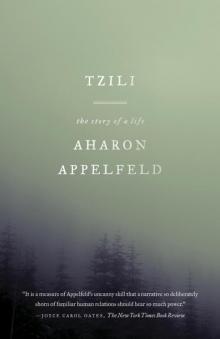 Tzili
Tzili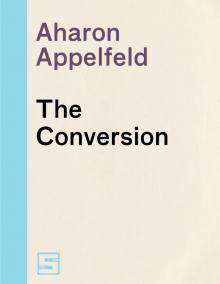 The Conversion
The Conversion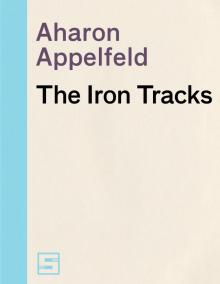 The Iron Tracks
The Iron Tracks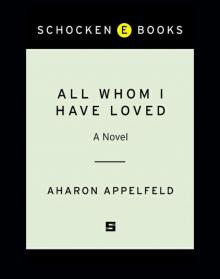 All Whom I Have Loved
All Whom I Have Loved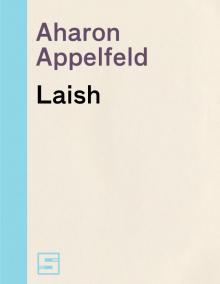 Laish
Laish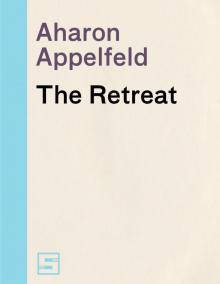 The Retreat
The Retreat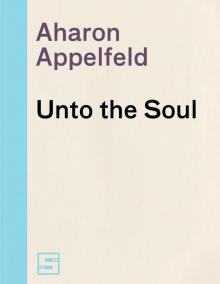 Unto the Soul
Unto the Soul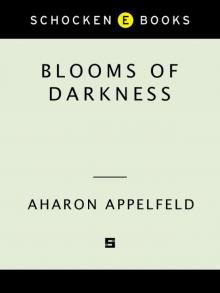 Blooms of Darkness
Blooms of Darkness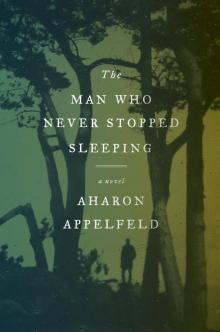 The Man Who Never Stopped Sleeping
The Man Who Never Stopped Sleeping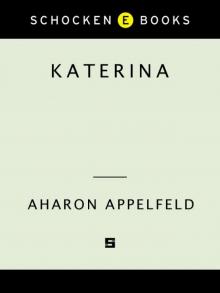 Katerina
Katerina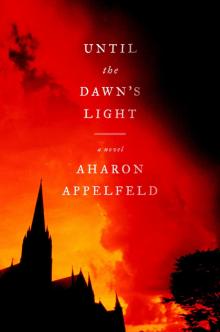 Until the Dawn's Light
Until the Dawn's Light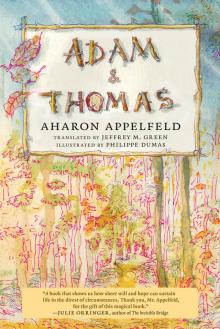 Adam and Thomas
Adam and Thomas Suddenly, Love
Suddenly, Love